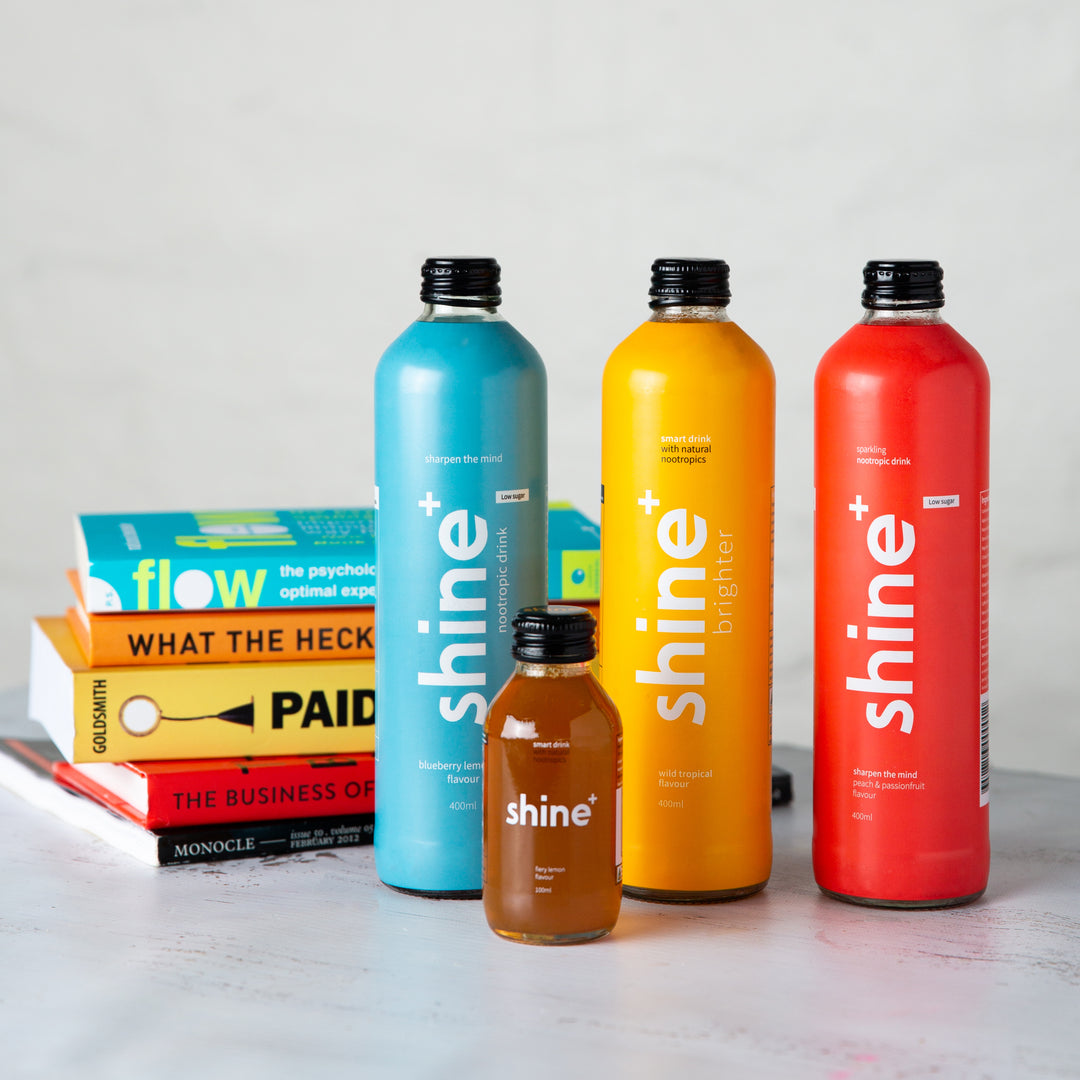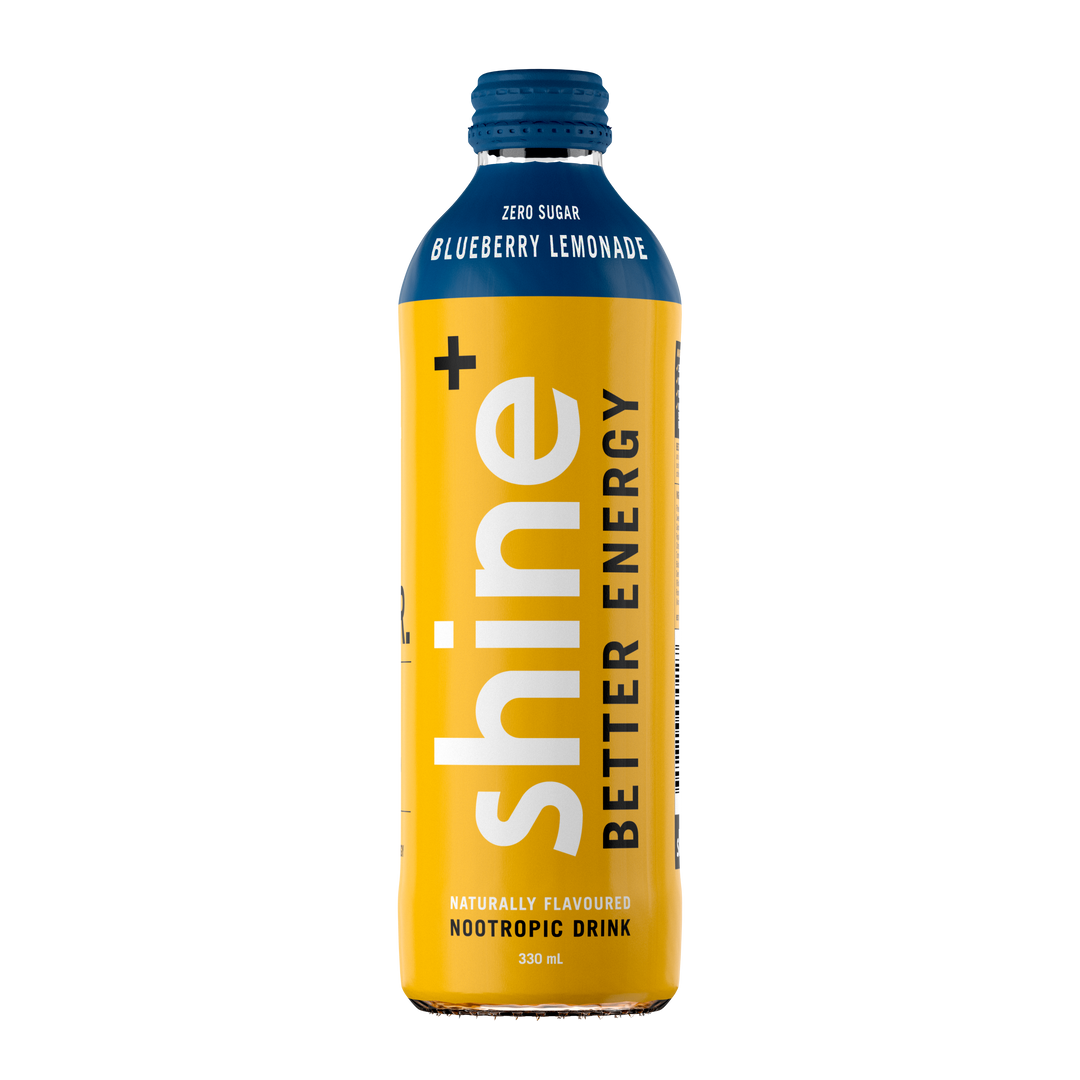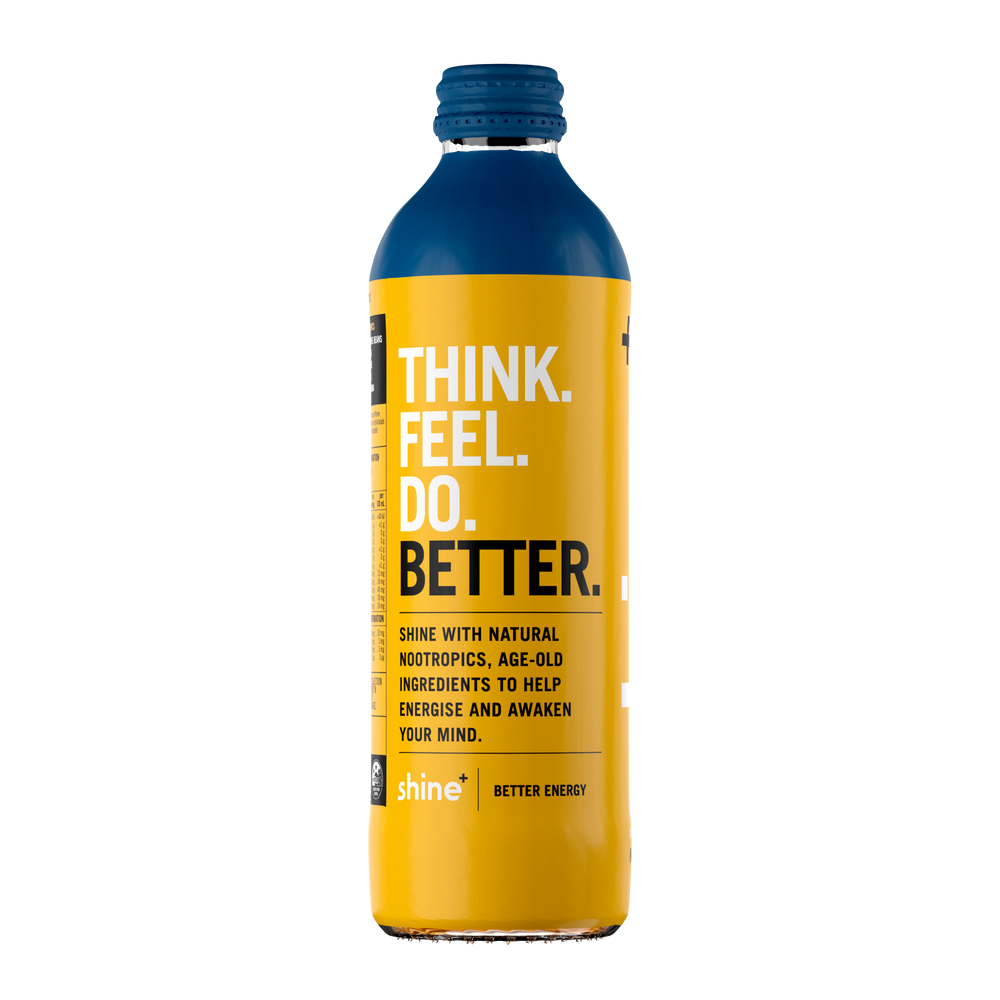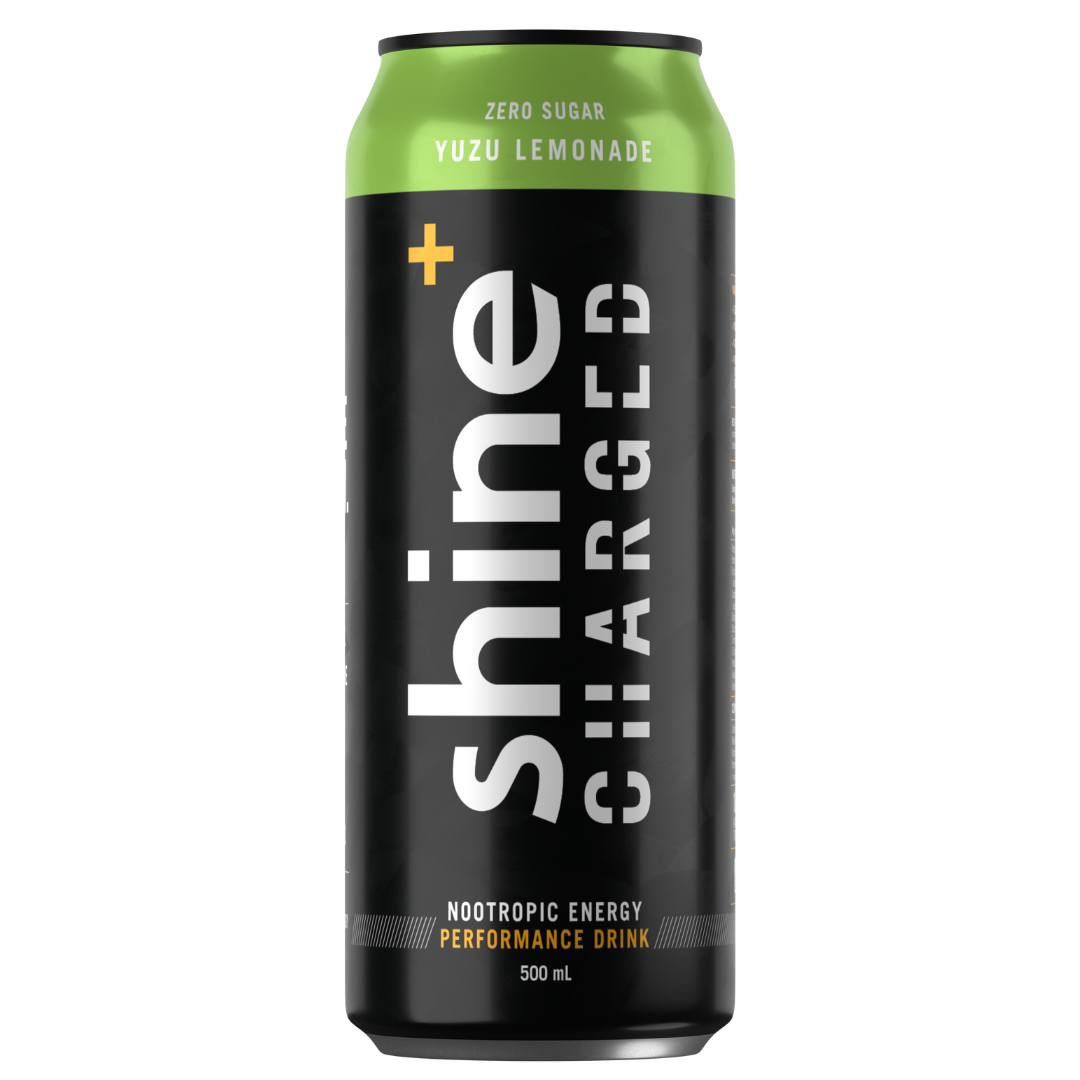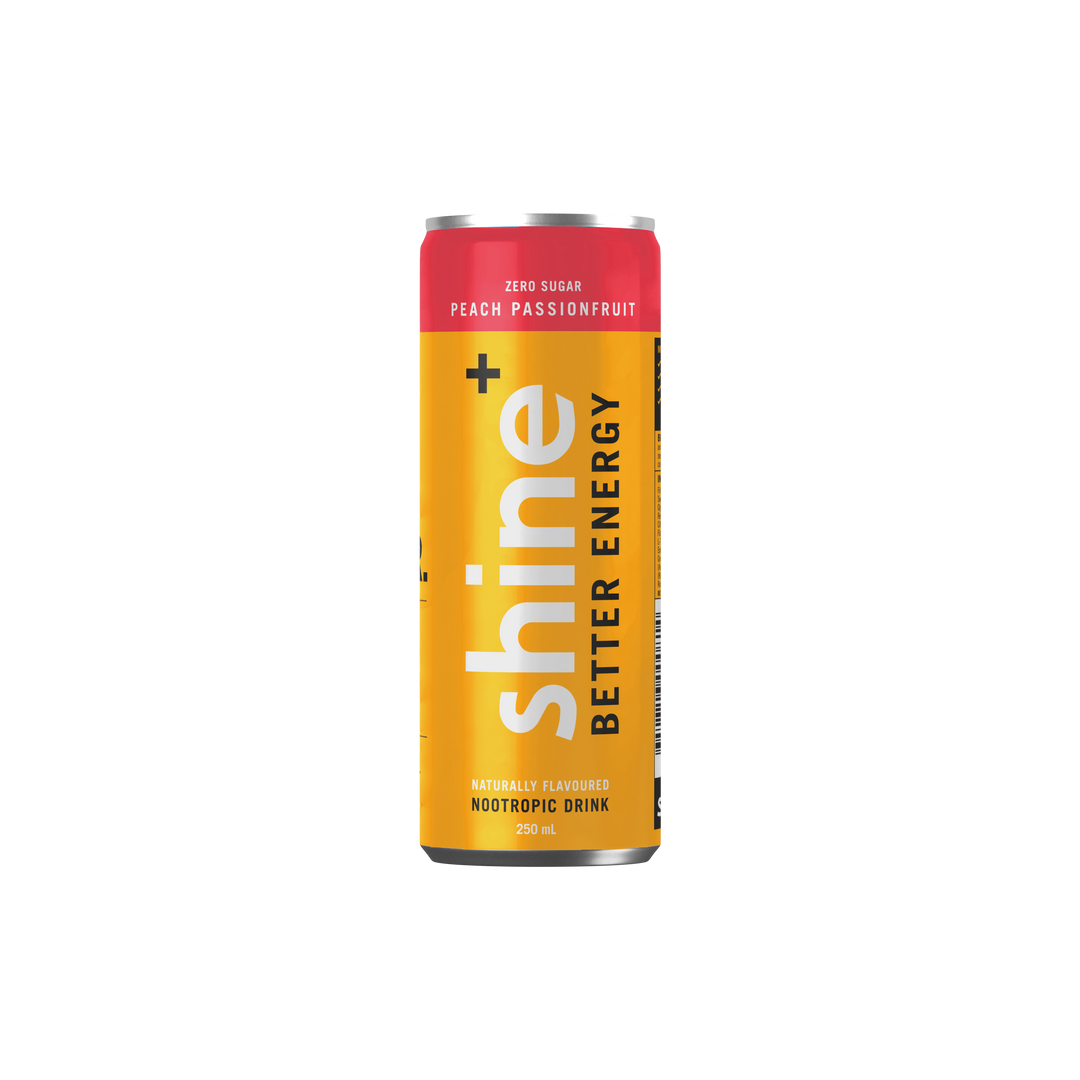EVERYTHING YOU NEED TO KNOW ABOUT GINGER
Ginger is one of the most common spices today, often seen in household kitchens around the world. While popular as an ingredient in various foods and creations, its uses have not only been limited to culinary - with a storied history in traditional medicine that continues to this day. With that in mind this makes ginger the perfect candidate to be included in shine+, and we will be exploring in detail why this is the case.
A deeply rooted history

Ginger comes from plant family as another shine+ ingredient, Turmeric, bearing a similar appearance (albeit minus the yellow colour of turmeric). It is believed that ginger originated in India thousands of years ago, as most of ginger’s earliest uses were on the Indian subcontinent. Indians, alongside the ancient Chinese, used ginger root as traditional medicine in tonics - such as nausea (Ernst 2000, p. 367-71) and indigestion (Hu et al. 2011, pp. 105-110).
While a common ingredient today, spice was a luxury in ancient times and was significantly valuable. By the 1st Century, widespread trade and popularity of ginger had led to it being cultivated as far West as the Mediterranean region. This value would continue to sustain even into Medieval times and beyond, and made Southeast Asian and Chinese traders significantly wealthy as a result.
Despite a lot of ginger’s use being medicinal in the past, it was also used in confectionary and sweets. In medieval times, ginger was often imported in a preserved state and used in sweet making. It is believed that Queen Elizabeth I of England went as far to make the gingerbread man biscuit during her reign. Aside from sweets, ginger was used in the preparation and cooking of meats and other meals as far back as the 13th Century.
Spicing up your brain
In recent years, it has been discovered that ginger can provide a variety of cognitive benefits to individuals, classifying it as a nootropic. Before we explore what these benefits are, we need to understand how ginger is interacting with our brains and how the process in which it is positively affecting us. Neurotransmitters, as we have touched on in other articles, are chemicals used by brain cells to communicate between each other and carry out your cognitive ability and actions. The most common of these cognitive abilities are an individual’s capacity to focus, concentrate, and retain memory. Other benefits revolve around maintaing food, cravings, and sleep.
Research conducted in Saudi Arabia has suggested that ginger, like most modern nootropics which are commonly used, can increase the levels of brain cells - particularly dopamine and serotonin (Waggas 2009, pp. 201-212). Dopamine is linked to maintaining focus and productivity, while serotonin is tied to positive or negative moods, meaning both of these specific chemicals are extremely important in cognitive function.
To shine+ your brightest
Through understanding how ginger has a positive influence on cognitive function, we can begin to understand how to apply these benefits practically. This is where shine+ comes in, and why we have decided to include ginger as a flagship ingredient of our smart drink.
Studies conducted on middle age women in Thailand have revealed that ginger significantly improved their cognitive function, especially in regards to working memory, reaction time, and maintaining attention (Saenghong et al. 2012). With shine+’s goal to help you maintain focus and energy over long periods of time, studies have justified the use of ginger in a nootropical capacity.
Furthermore, the boosts of brain activity in dopamine and serotonin means that ginger, alongside other shine+ ingredients, will work to ensure that you maintain your focus and productivity for as long as possible: whether it's a day in the office, university, or just everyday life!
Looking for that little bit of extra advantage in your day? Try shine+ Australia’s first smart drink, formulated from the best ingredients to ensure you maintain focus and energy for long periods of time!
References
- Priebe, K. (2011), Know Your Spice: A Brief History of Ginger, Mother Earth Living, <http://www.motherearthliving.com/Natural-Health/know-your-spice-a-brief-history-of-ginger>
- Saenghong, N. et al., (2012), Zingiber officinale Improves Cognitive Function of the Middle-Aged Healthy Women. Evidence-Based Complementary and Alternative Medicine Vol 2012
- Waggas, A. (2009), Neuroprotective evaluation of extract of ginger (Zingiber officinale) root in monosodium glutamate-induced toxicity in different brain areas male albino rats. Pak J Biological Science 12 (3), pp. 201-212
Words by Hayden Fitzgerald


